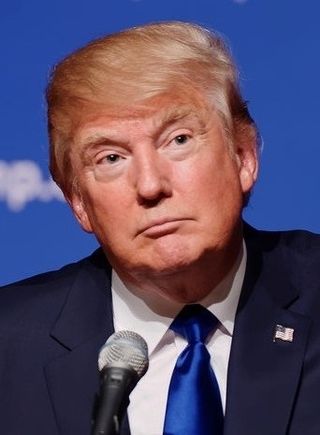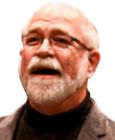News has just now arrived from Boulder, Colorado, of a new elementary school game called “Trump Tag.” My sister-in-law, Lynn, who has a keen eye and an even keener sense of humor, watches kids at recess chasing one another on the playground. (Recess has survived in Boulder.) The kids play a variation of one of the world’s oldest games. “The new ‘it’ guy,” Lynn reports, “is now called ‘The Donald,’ and he has to fluff up his hair as he runs around tagging other kids.” All the while, the rules of the game require The Donald to scare and motivate other players by yelling "I'm Trump; I'm Trump!"

Trump tag, in fact, isn’t only a variation of an old game; it’s a reworking of a recent game that players on the same playground invented a few years ago and named after Tim Tebow, former backup quarterback for the Denver Broncos. Tebow became famous for his on-field demonstrations of piety. He had such chronic trouble throwing into coverage that if his sideline bomb connected with a receiver, he would genuflect, having detected divine intervention in the completion. Some sports commentators looking for a well-behaved hero (scarce in pro football, alas) liked the devotional moments. But the league disapproved, mildly, as they tended to regard even religious displays as personal aggrandizement at corporate expense.
But kids on the playground in Boulder who watched the replayed highlights on television picked up the gesture and incorporated genuflection into a new version of “freeze-tag.” It’s unlikely that grade school kids understood Tebow’s zeal; they imitated the form without understanding the context and went down on one knee as a break in the action rather than an act of supplication. Once tagged, a player would “Tebow” and hold the pose until another untagged player released him. The emancipator would cry out, “Come on Tebow! It’s game time!” Then, unfrozen, the kid could jump up and get back in the game.
Tag is one of those chasing games where much of the fun emerges as roles abruptly reverse, and players switch quickly from offense to defense. You don’t want to be “it” for long. Therefore, winning and losing become hard to pin down in such a game. Skilled tag players gain their reputation not so much for winning but for when they demonstrate speed, elusiveness, organizing talent, or grace in letting smaller kids achieve the upper hand. In tag and especially for boys, competition serves to enhance a rough-and-tumble socializing. Then, too, celebrity (the “it” status) lasts only fleetingly in tag. Provisional victors play to give up power rather than attract it. In tag, it’s how you play the game that matters most.
Like most playground games, tag creates rules that kids learn on the fly. And the rules changed as former Tebow Tag players invented Trump Tag. As an aside, let me mention that kids have no trouble representing abstract, deep concepts, and relationships at play. For example, I once witnessed three older sisters and four younger brothers in an impromptu game. The girls, older by a couple of years, wiser, and much taller at that age, formed a triangle—literally setting the boundaries and sanctioning the event; meanwhile, the boys, weaved in and out of the defined playspace in a wild chase.
Not unusually, it’s easy to see kids incorporate the preoccupations of the adult world, as current events are reflected in kids play, not as through a glass, darkly, but as if in a funhouse mirror.
In this game of Trump Tag, those tagged don’t become The Donald, abruptly exchanging places with the tag-er. Instead, they become minions. “Once someone is caught,” in the game of Trump Tag, as my sister-in-law continues, “they have to get down on the ground, find some stones, and build a tower.” Yes, like a Trump Tower, but as the Freudians would say, in an overdetermined manner, because when they do, they yell "I've built a wall! I've built a wall!" And then, Lynn says, “they're free!”
Free. Or so they thought until Lynn recognized the teachable moment and asked the mischievous, pertinent, and adult, civics question: “So, how does The Donald ever get replaced?” The kids couldn’t answer that one. Perhaps The Donald is disrupting their game as much as he is disrupting the adult game of politics.


